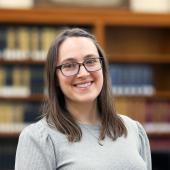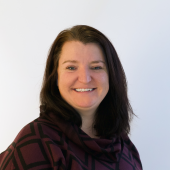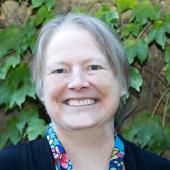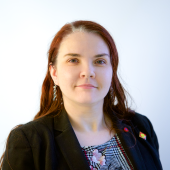
Tracing Ancestors on the Move in America
Our ancestors moved near and far seeking economic opportunities, religious freedoms, and closeness to family. These mobile ancestors, however, are notoriously difficult to research. We might have an ancestor in our sights and then—poof!—they’re gone; or we may have an ancestor for whom we have no idea of where they came from. This four-session online seminar will give you the context and motivations behind migrations across America from the 17th to 20th centuries, offer strategies for discovering ancestral origins and future movements, discuss go-to records, and provide tools to help track your family on the move.
This course includes four 90-minute classes; exclusive access to handouts and recordings of each presentation; and in-depth q&a sessions with the instructors.
August 3
Class 1: Colonial Migrations and Records
Presented by Lindsay Fulton
Colonial migration is complex. This first class will discuss the legal process for settlement in the American colonies and the records generated, patterns of settlement and migrations along the eastern seaboard, and the motivations behind these movements.
August 10
Class 2: Westward Migration, 1783-1900
Presented by Hallie Borstel
The 19th and 20th centuries in America are a period of mass migration across the country. This class will discuss the push-pull factors that defined this era, the opening of the West, how advances in transportation aided our ancestor’s migration, and how federal policies encouraged the expansion of settlement.
August 17
Class 3: Follow the Money: Go-To Records for Tracing Ancestors on the Move
Presented by Melanie McComb
Financial records can help fill in the timeline of your ancestor’s movements and explain motivations behind migrations. Deeds, pension, town, probate, tax, and employment records may exist when vital records do not. In this class, Melanie McComb will demonstrate why financial records should be your go-to for tracing ancestors on the move, discuss what information is included in each, and where to find them.
August 24
Class 4: Strategies for Tracking Ancestors on the Move
Presented by Ann G. Lawthers
As in much of genealogy, you must rely on multiple records and strategies to piece together your ancestor’s life. This is especially true for tracing ancestors on the move. This final class will provide some essential strategies and research tools to understand your ancestor’s movements, providing several practical examples and case studies along the way.




